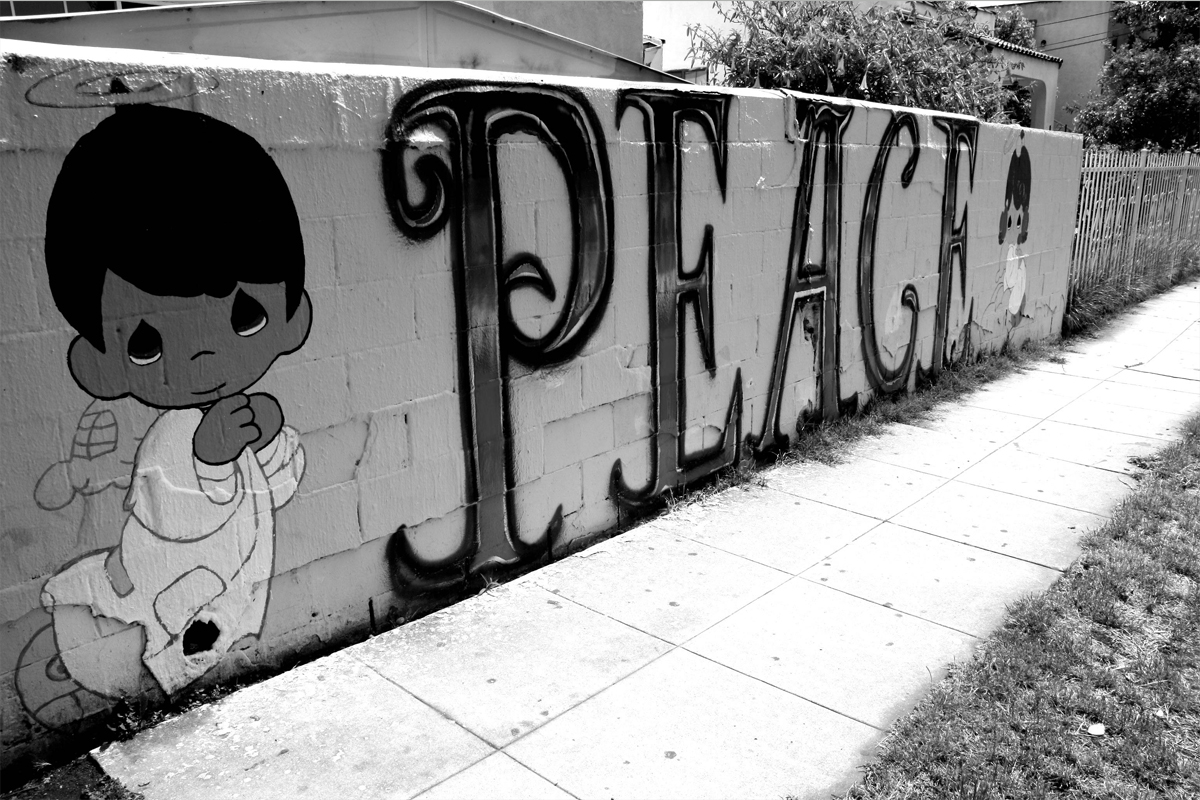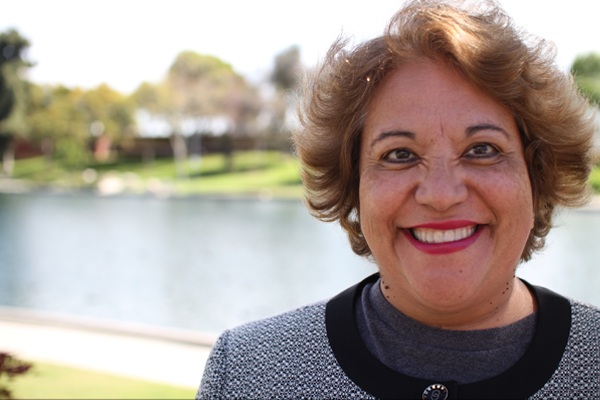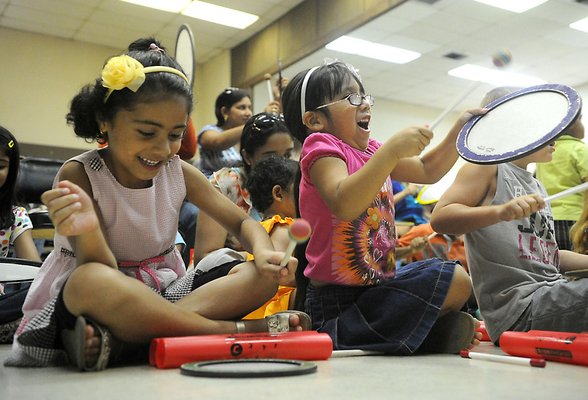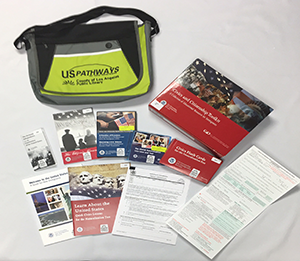Warrior of East L.A.

I remember Flaca walking into the computer lab with her white t-shirt, khaki shorts that met her tube socks at her knees, her fancy leather black belt, her slick dark sun glasses and her checkered red and beige long sleeve shirt. She looked like a cholo.
She took her time walking across the room, scanning the computer lab as though preparing for battle. When she finally reached my desk, she handed me a referral from a government program she was forced to enroll in and said, in a low voice, “Hey Miss. I’m here to get help with my Math and English, so what do I do”?
I was recruited into the tutoring program by my trigonometry professor at East Los Angeles College since I often enjoyed assisting classmates. I remember Flaca sitting in front of the computer simply staring at the screen. I thought she was struggling with the operation of the computer. I learned later that she would come to class intoxicated and brought her happy juice. It was a thirty- two ounce soda mug with alcohol but because it had no aroma of alcohol I didn’t know. It was also a little strange that she preferred wearing her slick shades in class. I thought the computer screen was too bright for her. In reality, she was loaded and she hid behind them.
I had a feeling that she wanted to improve her life since she was attending this class. As she behaved, I continued to assist her and in time we became friends. We talked. I asked what her favorite drink was? With a naughty smile she looked straight into my eyes and confessed that she enjoyed her alcoholic beverage while she worked on her lessons. This situation was new to me, so I said nothing. Over the weeks, we talked a little about college studies and concerns about the weather as I tried to figure out what to do.
When I felt more comfortable with her, I finally addressed the issue of coming to class loaded and bringing her happy juice. I could have lost my job if my boss found out that she was drinking in class, but my heart told me to stay quiet. I told her that I needed her help. We would work as a team in order for her to stay in the class since it was mandated by her program. I asked her to pretend as though she was doing her work by hitting the computer keys every few minutes. I also asked her to stay awake because her snoring might disturb other students and attract attention. I suggested she refrain from bringing her favorite drink to class, which was better enjoyed outside class.
With time she stopped bringing her mug and, eventually, began to complete her lessons. But she kept her shades on.
Flaca was raised by both her parents as an only child for a decade, followed by a brother ten years younger and by a sister four years after that. Before the arrival of her siblings, she and her parents had money and time enough to take camping trips, go bowling and to the movies. Her father worked in the roofing industry and she was his assistant for a while. However, he always wanted a son and he taught her to work and play sports as if she were so.
But she reached her teenage years as her parents were occupied changing diapers, and working harder than ever. “I felt as though my brother and sister stole my father from me,” she told me.
At fifteen, she was searching for attention and began to hang out with the neighborhood gang. After school, she and her comrades would put their lunch money together and would pay a local wino to buy them a six pack, which led to a twelve pack, and eventually to cases of beer. They began breaking into newspaper vending machines. From there, she began using drugs. She even smoked Angel Dust on the lawn outside the East Los Angeles Sheriff station.
Her parents talked with her about her mischief, beat her, threw her out of the house, but gave her chances to return home. Her troubles kept growing. She would behave for a while but it didn’t last long, and her defiance would intensify.
She was expelled from Schurr High School, attended Vail Continuation High School and was expelled for fighting. She was in and out of juvenile detention and jail. Eventually, she was sent to the Mira Loma detention facility in Lancaster which gave her much needed structure. There she completed her G.E.D.
Once on the outside, she worked at the Sears Warehouse, then as a mail clerk at Wells Fargo Bank, followed by a printing shop. Then
in her mid-twenties, she began using heroin. She met Sheila at a party and grew as addicted to her as she was to the drug. They became lovers and sold heroin together. Addicts, called Sheila with their orders; Flaca made the deliveries. “It was just like delivering pizza- like a franchise, in a way,” she said. Sheila was her immediate boss, but there were other distributors above her.
Flaca and Sheila shared the upkeep of the house and expenses for about a year. Then one night, Flaca stayed out all night. Sheila and she argued. The next time Flaca stayed out all night, Sheila kicked her out. That proved lucky, as a few days later cops raided the house and arrested Sheila.
Flaca moved back with her parents. At this point, longing for children, she decided to take a break from women. Her next door neighbor, Smokey, was a longtime friend and they kind of messed around when she was younger. He was eleven years her senior, had a good heart, was handsome, masculine and was right on the other side of the fence. He had also served in the Vietnam War. The proposition was simple, she told him: I need your help to have my children. He would not have any responsibility or claim to them, but he could see them from next door. With time, he fathered her two sons. He also was in and out of jail and survived working odd jobs, then died from a bleeding ulcer soon after the birth of her second child. He was found on the lawn of what is now the East Los Angeles Library.
Meanwhile, Flaca continued making poor choices. She was stabbed twice, took part in drive-by shootings, kept drinking and using drugs, and was in and out of jail. She was respected in the gangster community since she did bad things in a big way.
Years of abuse wore her down so that she lost her eye sight for a year. Consequently she was unable to work and went on government aid known as SSI in 1991 at the age of 31. Her parents didn’t condone her behavior, but they loved her and cared for her two sons.
After a year of therapy she regained her eyesight. One morning while visiting a friend, she realized that she had not drunk or used drugs the night before. For the first time in decades she was able to think with a clear mind. Because she qualified for a free bus pass, she got on the bus after visiting with this friend to be alone and think. For a week, she left her parents’ home early and rode the bus all day. Those bus rides were a turning point.
She began to attend Narcotics Anonymous and Alcoholics Anonymous meetings, and tried to stay clean and sober. She relapsed several times, but eventually held to it.
As years passed, she learned a more structured lifestyle. She began by taking her sons to school regularly and picking them up afterwards. As time went on, she befriended the principal of the same school as he later invited her to enroll in parenting classes. Flaca learned how to kneel down and look her children in the eyes when she spoke to them. She became skilled in establishing parameters when giving her boys a choice when selecting things. She was taught the value of punctuality, whether it was to arrive at school on time regularly or returning library materials by the due date.
When her sons were toddlers, she entered them in baby contests and won several times. Later, she enrolled her boys in baseball, soccer, karate, and taught them to bowl. The year that her sons played peewee baseball was the first time in the league’s history that both the coach and the assistant coach were women. Flaca was the head coach as the team made it to the playoffs.
She learned to use the libraries, and showed her boys how to do the same. In the annual school fundraiser she sold candy for her sons and was the top seller for three consecutive years. The first year as the top seller they won tickets to Knott’s Berry Farm and the second year, tickets to Disneyland. Flaca already had experience selling things. Candy sales came easy to her and it was legal. “No one was shot. No one got killed,” she said. “It made me feel like I was a real mother.”
I remember the year she first came in for tutoring telling me about selling enough candy to win bicycles for her sons.
Two weeks before her father died, he told her to go back to school and become a rehabilitation drug counselor. She’s doing that now, working on her degree at East Los Angeles College.
It’s been 21 years since she first showed up in my class. I have watched her all that time.
I see her on campus now, an adult finally, and no longer in her sunglasses and khaki shorts that meet her tube socks at the knees. She is usually with one of her sons, who is also a student. I see them after class, walking together slowly toward the parking lot.

November 7, 2015










